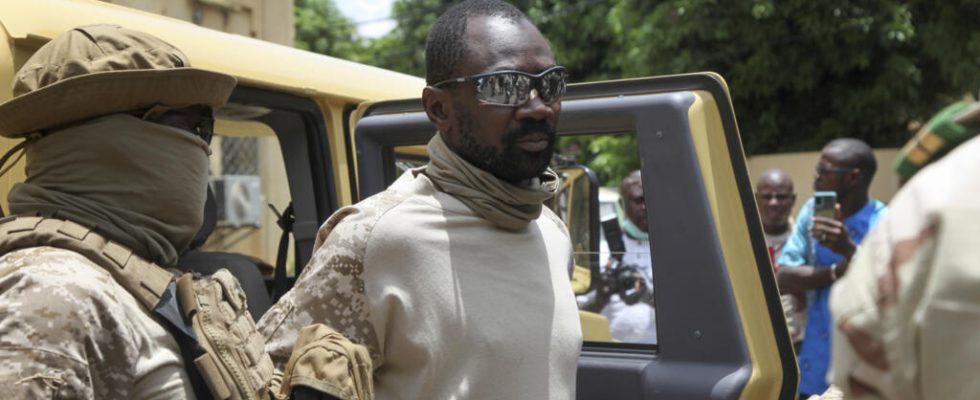The inter-Malian dialogue desired by the transitional authorities officially begins this Saturday. Discussions begin at the municipal level. Then will come, by the end of the month, the regional and then national phases. This inter-Malian dialogue is supposed to bring national cohesion back to the country, but the suspension of the activities of the country’s political parties and associations, announced on Wednesday, sparks a wave of protest which disrupts the discussions even before they begin. have started.
2 mins
The inter-Malian dialogue “ must take place in a climate of serenity and not cacophony “, according to the transitional government, and this is even one of the arguments officially put forward for suspension of political party activities. However, for two days, it has been quite the opposite: voices have multiplied, within the parties and beyond, to denounce a decision “ illegal ”, or even “ dictatorial ”, some even calling for civil disobedience.
In a joint statement, almost all of Mali’s political parties and civil society organizations officially announced that they would not participate in what they describe as ” so-called inter-Malian dialogue “. In any case, the suspension of their activities prohibited them, it is understood, from taking part.
Read alsoMali: indignation grows after the suspension of the activities of political parties
The armed groups from the North who signed the defunct 2015 peace agreement will also not participate. Now considered “terrorists” by Bamako, the CSP rebels are in fact not invited. The Jnim jihadists, linked to al-Qaeda, who had never signed this peace agreement, were not invited either. So many absences which de facto limit the scope of this dialogue, supposed to bring peace to the country.
In a video broadcast on Wednesday by Mahmoud Dicko, exiled in Algeria, the influential imam, now a political opponent, believes that the current leaders of Mali only seek to stay in power, that they themselves are too divided to bring together the Malians and castigates the inter-Malian dialogue, also attacking its organizing committee in a targeted manner.
On the occasion of Eid, Tuesday, Colonel Assimi Goïta, transitional president, welcomed the start of this dialogue which in his eyes constitutes “ the ideal setting to reconcile Malians. »
Alioune Tine reacts to the suspension of the activities of parties and associations
Alioune Tine, founder of the Afrikajom think tank, was a few days ago mandated by the United Nations as an independent expert on the human rights situation in Mali. After six years in office and a final report presented last month, he has just given way to the Peruvian Eduardo Gonzalez. Contacted by RFI, he reacts to the suspension by the Malian transitional authorities of the activities of political parties and associations.
“ It’s a kind of admission of helplessness. It is the admission that there are no political prospects and that we want to keep power by force. It seems to me that it’s not going to work, knowing Mali, which experienced dictatorship with Moussa Traoré. It ended with a tragedy, which the Martyrs’ Memorial continues to remind Malians of. »
The authorities say it is a public order measure and accuse political parties of subversion activities. But for Alioune Tine, this policy of “ scapegoat “, “ no longer passes “. “ Now, the economic collapse of Mali and then there is no improvement in the security situation. So, I think the time has come for them, the military, to do what they know how to do: the war against terrorism. And then there is the collapse of the sympathy they enjoyed in Mali and elsewhere. There, it’s over. Legitimacy is earned through the ballot box. »
